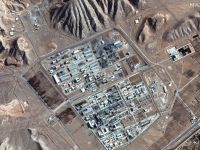US President Bill Clinton on Monday headed into another round of late night peace talks at Camp David where signs were emerging that Israeli, Palestinian and US officials may have begun drafting components for a possible agreement.
"I expect meetings to go well into the night if not the morning," White House spokesman P.J. Crowley told reporters at a press briefing late Monday after Clinton had put in another long day with Israeli and Palestinian negotiating teams.
Crowley said the president had also conferred with Palestinian President Yasser Arafat and would not rule out a nighttime meeting with Israeli Prime Minister Ehud Barak.
Sources close to the Palestinian and Israeli delegations meanwhile suggested that the parties were now drafting the broad outlines of what could emerge as a settlement.
"Clinton is meeting with the teams to sort out points of agreement and conflict and then he will go to Barak and Arafat to finalize a response in order to prepare a draft," a Palestinian source told AFP.
An Israeli source said "some drafting is indeed going on," noting that Daniel Reisner, a legal advisor with the Israeli army had joined the Camp David team for "drafting purposes."
Despite scant visible evidence of progress at the two-week-old talks, Clinton remains convinced that the process is "constructive" and that a deal can still emerge, according to chief White House spokesman Joe Lockhart.
Lockhart said the president's impression that the process could yield a peace deal, formulated after a marathon overnight meeting on his return to Camp David from Japan on Sunday, had not changed.
"I think we're still operating from where we were this morning, that it's still constructive to continue these sessions," he said at an earlier briefing here.
But he added that Clinton was making "a rolling assessment" of the talks, cautioning that there could come a time when the parties felt that negotiations should be broken off.
"The president ... is working on what I'll call a rolling assessment of whether the substance and atmosphere at these talks are one that potentially could lead to an agreement.
"While that is the case, and while the president believes that the discussions are substantive and have the potential of leading to an agreement, he will remain here and he will keep the parties here to keep working."
Israeli Tourism Minister Anaon Lipkin-Shahak, a member of Israeli negotiating team, earlier Monday told Israel's second television station the next 24 hours would be "crucial" to peace prospects.
"It will take another one or two days to reach the moment of truth and know if we are heading for an agreement," he said.
But a Palestinian official close to the negotiations told AFP "there is no real indication in the present situation that would allow us to say there will be an agreement."
Arafat, Barak and their teams are deeply divided over a variety of issues that must be resolved if there is to be an end to the 52-year-old Israeli-Palestinian conflict, the most difficult of which is the future status of east Jerusalem, where both sides claim sovereignty.
Israeli and Palestinian negotiators are working against a September 13 deadline, a date on which Arafat has vowed to declare an independent Palestinian state with east Jerusalem as its capital.
Israel occupied the Arab eastern sector in the 1967 Middle East war and has proclaimed the entire city to be its eternal and undivided capital, a position not recognized by the international community.
The Palestinians are insisting on full sovereignty over east Jerusalem which they see as part of the Arab territories that Israel occupied in 1967 and is now bound to return under United Nations resolutions - THURMONT, Maryland (AFP)
© 2000 Al Bawaba (www.albawaba.com)







